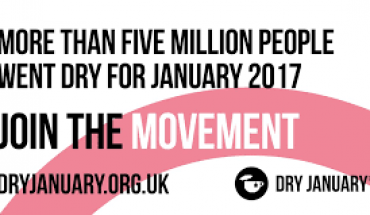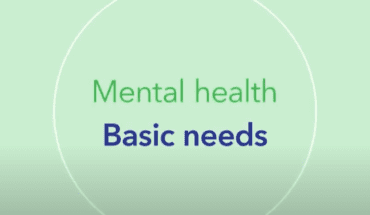Mental health is no longer the taboo subject it once was and a good job too, with one in four people suffering from a mental health problem at some point in their lives.
In addition, more and more people are looking to move away from pharmaceutical drugs to treat mental health problems. I think people are coming to realise that, whilst pharmaceutical drugs are sometimes useful and necessary, they are not a permanent solution.
I think people are coming to realise that, whilst pharmaceutical drugs are sometimes useful and necessary, they are not a permanent solution.
They are becoming more aware that if you stop taking them the problem may well return, which in turn can lead to becoming addicted to these drugs. In other words, swapping one mental health issue for another.
Drugs can give relief, but can also create problems. Time and time again I see that when people deal with their problems without recourse to drugs, they often feel they have more control over their own mind. This boosts their self-esteem and delivers benefits in many areas of their life.
However, often alternatives carry a cost, whether it is natural or OTC alternatives to prescription drugs, counselling and other talking therapies, etc., meaning that some who could really use support may not be in a position to access it.
However, this could change with a number of emerging approaches that could democratise people’s access to mental health alternatives.
Therapeutic approaches are popular and highly effective. Cognitive Behavioural Therapy (CBT) is the modality most commonly used and the one offered by the NHS. At the time of its conception it was unique as most conventional treatments were still using a model of analysis of the patient’s past. CBT instead focuses on the present i.e. what the person is thinking and feeling (their automatic thoughts) in the moment when they are experiencing the problem.
In theory, life today is easier than it has ever been; we are healthier, we earn more, we live longer, we have access to a wide variety of activities and the opportunity to work in careers that we enjoy. And yet – it seems that more people than ever suffering from anxiety and stress. Why is this?
Neuroscientists believe it is because our brains are still wired for ancient times when the dangers were very clear. The brain would go into fight, flight or freeze mode, then when the danger subsided the brain would relax. Nowadays, we have so many demands on us; texts, Facebook messages, emails, there is no off switch and, as a result, our brains still perceive a very real danger. With people going into their survival response so much of the time, it’s no wonder they become burnt out and stressed. I believe it is more important than it has ever been to take time to relax, to deal with our fears and anxieties and to find a mental and emotional balance in life.
I believe it is more important than it has ever been to take time to relax, to deal with our fears and anxieties and to find a mental and emotional balance in life.
For years, the medical profession thought the mind and body were separate. They now know that the mind and body influence each other greatly. Neuroscience research has backed this up; negative emotions can have a major impact on the body.
So research into alternative treatments and even technology-based approaches is changing the way we can deal with mental health issues.
For example, the rise of apps like Breathe2Relax, Optimism and IntelliCare ( which are all free) and bio feedback devices like EM wave, have allowed people to access help wherever they are (access to therapists in remote rural areas can sometimes be a real challenge) and whatever their financial circumstances, demonstrating that, in many ways, technology has democratised the industry.
There are two pieces of technology that I often recommend to my clients, especially for helping to deal with anxiety. These are light and sound devices, like the Mindlab and the emWave Heart Math Device.
Light and sound devices operate via glasses and headphones; as you sit with your eyes closed the machine flashes lights whilst also playing tones. The various settings do everything from helping you to relax, to enabling you to learn more effectively or even become more motivated.
The emWave device teaches you how to get your mind in sync with your body; this is called coherence. It comes in computer form, or in a portable device or even as an iPhone app.
On the computer version there are games that aid coherence, which I find particularly effective at teaching children how to master their emotions; you need to learn how to centre yourself in order to win. Therefore this system succeeds in relaxing the player where traditional computer games create more stress.
In addition, activities like dance, tai chi or yoga, the body can release the tension that causes stress and anxiety. These practices would be particularly suitable for the kind of person who is deskbound and working in a high-pressure environment, which means a hell of a lot of people!
In conclusion, we all have a responsibility to ourselves to look after our mental health, and to seek help if we are struggling. There are lots of ways for everyone to do this, whether you choose to work one-to-one with a therapist, or you prefer to work alone with help of technology, or perhaps you join a therapeutic group, or take time to walk in nature, dance or practice yoga, or even just take a few minutes every couple of hours to stop, breath, and relax – even if just for a moment.
ABOUT THE AUTHOR
Christopher Paul Jones, aka The Breakthrough Expert, is a therapist based in Harley Street who specialises in helping people let go of their fears, anxieties and even their phobias; from a fear of public speaking to anxieties around work, Christopher has helped 100s of people ‘let go’ and get their lives back. He even cured his own morbid fear flying, to the extent he was able to take a sightseeing flight through the Pyrennees – strapped to the OUTSIDE of a helicopter! YouTube
- Ridiculous Spell can help fix your phobia - 1st March 2018
- 10 most common Christmas stressors - 22nd December 2017
- Samhainophobia – top 10 Halloween phobias - 29th October 2017







